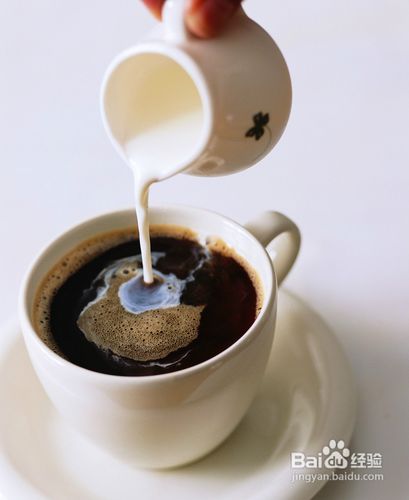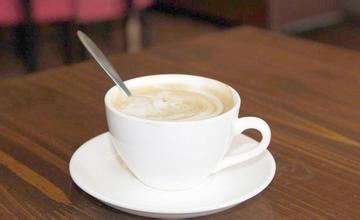Do you want light roasted coffee, medium roasted coffee or deep roasted coffee?-what are the light roasted coffees?
Do you want light roasted coffee, medium roasted coffee or deep roasted coffee?-what are the light roasted coffees?
Coffee beans of different varieties and different producing areas have their own "best roasting degree" according to their characteristics. Some responsible coffee bean suppliers will tell buyers the "recommended roasting degree" and "coffee flavor characteristics" of these beans. In order to prevent some high-quality coffee beans from being destroyed by improper roasting methods (for example, Costa Rican coffee beans are famous for their rich, bright sour taste. But overbaking can destroy these traits. Of course, for coffee enthusiasts, constantly experimenting and innovating is also a rare pleasure. The concept and principle of coffee roasting, as the name implies, roasting is to provide heat to coffee beans, so that a series of chemical changes occur inside. Raw coffee beans show the unique color, aroma and taste of coffee by roasting. Every coffee bean contains fragrance, sour taste, sweet taste and bitter taste. How to release it incisively and vividly depends on the heat of baking.
From the insipid raw beans to the mellow aftertaste in the cup, baking is a very important step in the long journey of every coffee bean to outline its character and nurture its fragrance. Coffee beans are about 20 minutes long (inversely proportional to the temperature) and the temperature is as high as more than 200 degrees Celsius. In the process of dialogue with hot cuts, coffee beans have undergone many chemical changes.
First of all, the starch in raw beans will be converted into sugars and acids because of high temperature, while substances such as cellulose will be carbonized to varying degrees. Water and carbon dioxide evaporate, while proteins are converted into enzymes, which combine with the rest of the fat to form an oil film on the surface of coffee beans. Coffee beans swell after roasting, giving off a primary explosion, a secondary explosion, a sound like popcorn, and loss of moisture. But because the skin on the surface of coffee beans is very tough, we usually don't see coffee beans crack like popcorn. From raw beans, light roasting, medium roasting to deep roasting, the water is released again and again, the weight is reduced, but the volume slowly expands, the color of the coffee beans deepens, the fragrant oil is gradually released, and the texture becomes crisp.
Although the beans here are baked, they are full of flavor, so they can be boiled into a delicious Espresso, although I didn't understand it correctly when I first opened the shop. But now I can finally get to know everything. Most of the home-made roasters in Japan are not hot enough to increase the air pressure and prolong the baking time in order to actually heat the beans. However, roasters like Ferrari can heat the coffee beans until they are ripe even if they use a roaster that is hot enough. So, just bake it shallowly. This is one given to me by Professor Matsumoto. The roaster I use is made in Japan. Although I have improved it twice since the original machine, I am still not satisfied, so as long as the time is ripe, I intend to change to a foreign machine with better performance. Raw beans are transparent (delicious Coffee Research Society), explored, and with the knowledge of baking, they are taught by Mr. Matsumoto one by one. For me, even if my biggest goal in the future is roasting. It is also a major topic, no matter how good the performance of the coffee machine is and how superb the skills are, if the coffee beans are of poor quality or Espresso which is the most suitable for brewing and drinking, that is why I pay so much attention to beans. In addition, through the acquisition of baking knowledge, we can deepen our understanding of Espresso. Baking is indeed an esoteric and interesting procedure. Since my father's shop has learned a lot of skills after baking beans and becoming a meeting tool (delicious Coffee Research Society), I definitely know more correct information about baking than extraction techniques. In addition, I heard from Mr. Matsumoto about a Swiss man named Ferrari and coffee beans, which made me have a great change in the concept of roasting.

Important Notice :
前街咖啡 FrontStreet Coffee has moved to new addredd:
FrontStreet Coffee Address: 315,Donghua East Road,GuangZhou
Tel:020 38364473
- Prev

Yuri coffee machine descaling video-Yuri automatic coffee machine
Yuri coffee machine descaling video coffee machine steam pipe after a section of water, there is no reaction, coffee machine cleaning key is no longer flashing, but everlasting, at this time, what we need to do is to wait until the next time out of the water, the interval between the two water is long, we must wait patiently. After a few times of water coming out of the steam pipe, there will be a lack of water lamp on (as for how many times it needs to be out.
- Next

Introduction to the planting environment for describing the flavor of coffee at high and low altitude
Coffee altitude high and low flavor description planting environment introduction Yunnan coffee growing area frost disaster once again verified my theory, the highest altitude planting area is almost not affected by frost, while in some low-lying areas in fact, the world's best Blue Mountain coffee is planted in the altitude range of 1500-2100 meters, coffee people who can test coffee cups have a common recognition.
Related
- What brand of black coffee is the most authentic and delicious? what are the characteristics of the flavor of the authentic Rose Summer Black Coffee?
- Introduction to the principle and characteristics of the correct use of mocha pot A detailed course of mocha pot brewing coffee is described in five steps.
- Which is better, decaf or regular coffee? how is decaf made?
- How much is a bag of four cat coffee?
- How about four Cat Coffee or Nestle Coffee? why is it a cheap scam?
- Which is better, Yunnan four Cats Coffee or Nestle Coffee? How about cat coffee? is it a fake scam? why is it so cheap?
- How about Cat Coffee? what grade is a hoax? which instant coffee tastes better, four Cat Coffee, Nestle Coffee or G7 coffee?
- Process flow chart of coffee making-Starbucks coffee making process what coffee tastes good at Starbucks
- The top ten best coffee beans in the world Rose summer coffee or Tanzanian coffee tastes good
- Yunnan four cat coffee is good to drink?_four cat coffee is a big brand? four cat blue mountain coffee is fake?

